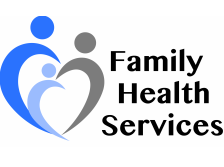Diabetes News – February 2023
AMERICAN HEART MONTH
Traditionally the month for lovers and all things pink and red, February also reminds us to take care of our heart with the recognition of American Heart Month. If you or someone you love has diabetes it is very important to pay attention to heart health as the two conditions are directly connected.
How Diabetes Affects Your Heart
Over time, high blood sugar can damage blood vessels and the nerves that control your heart. People with diabetes are also more likely to have other conditions that raise the risk for heart disease:
- High blood pressure increases the force of blood through your arteries and can damage artery walls. Having both high blood pressure and diabetes can greatly increase your risk for heart disease.
- Too much LDL (“bad”) cholesterol in your bloodstream can form plaque on damaged artery walls.
- High triglycerides (a type of fat in your blood) and low HDL (“good”) cholesterol or high LDL cholesterol is thought to contribute to hardening of the arteries.
None of these conditions has symptoms. Your doctor can check your blood pressure and do a simple blood test to see if your LDL, HDL, and triglyceride levels are high.
These factors can also raise your risk for heart disease:
- Smoking
- Being overweight or having obesity
- Not getting enough physical activity
- Eating a diet high in saturated fat, trans fat, cholesterol, and sodium (salt)
- Drinking too much alcohol
People with diabetes are also more likely to have heart failure. Heart failure is a serious condition, but it doesn’t mean the heart has stopped beating; it means your heart can’t pump blood well. This can lead to swelling in your legs and fluid building up in your lungs, making it hard to breathe. Heart failure tends to get worse over time, but early diagnosis and treatment can help relieve symptoms and stop or delay the condition getting worse.
Get regular checkups to keep track of your heart health.
Take Care of Your Heart
These lifestyle changes can help lower your risk for heart disease or keep it from getting worse, as well as help you manage diabetes:
- Follow a healthy diet. Eat more fresh fruits and vegetables, lean protein, and whole grains. Eat fewer processed foods (such as chips, sweets, and fast food) and avoid trans
- Drink more water, fewer sugary drinks, and less alcohol.
- Aim for a healthy weight. If you’re overweight, losing even a modest amount of weight can lower your triglycerides and blood sugar. Modest weight loss means 5% to 7% of body weight, just 10 to 14 pounds for a 200-pound person.
- Get active. Being physically active makes your body more sensitive to insulin (the hormone that allows cells in your body to use blood sugar for energy), which helps manage your diabetes. Physical activity also helps control blood sugar levels and lowers your risk of heart disease. Try to get at least 150 minutes per week of moderate-intensity physical activity, such as brisk walking.
- Manage your ABCs:
- A: Get a regular A1C test to measure your average blood sugar over 2 to 3 months; aim to stay in your target range as much as possible.
- B: Try to keep your blood pressure below 140/90 mm Hg (or the target your doctor sets).
- C: Manage your cholesterol levels.
- s: Stop smoking or don’t start.
- Manage stress. Stress can raise your blood pressure and can also lead to unhealthy behaviors, such as drinking too much alcohol or overeating. Instead, visit a mental health counselor, try meditation or deep breathing, get some physical activity, or get support from friends and family.
Your doctor may also prescribe medicines that can help keep your blood sugar, blood pressure, cholesterol, and triglycerides close to your target levels.
See Your Diabetes Educator
Work with a diabetes care and education specialist for help avoiding health complications such as heart disease. You’ll get support and solutions and hear about the latest advances in managing diabetes. Find out more about how diabetes education can help you take the best care of yourself. And be sure to ask your doctor for a referral if you don’t already have a diabetes educator.
Content Source: “Diabetes and Your Heart” (CDC)
The Diet-Betus – our version of recipe of the month just as tasty but with a healthy tweak here and there. February is here, and love is in the air. Show your body some love with this red velvet bean smoothie! Beans are a great and affordable source of protein to incorporate into your daily intake. This nutrient dense smoothie is packed with protein, fiber, calcium, and iron. It makes a delicious breakfast–don’t knock it till you try it!
Red Velvet Bean Smoothie
Servings: 1
Prep Time: 10 minutes
Ingredients:
- ¼ cup red kidney beans (drained, rinsed)
- 1/2 c unsweetened almond milk
- ½ c frozen strawberries
- ½ c plain nonfat greek yogurt
- ½ frozen banana
- 1-2 tsp maple syrup to taste
- 1 tbsp cocoa powder
- 1 tbsp ground flaxseed
Instructions:
- Place all ingredients into a blender
- Blend all ingredients until smooth
Nutrition:
- Calories: 246 kcals, Total fat: 4g, Saturated fat: 0g, Cholesterol: 0mg, Sodium: 5%, Potassium: 17%, Total Carbs: 45 g, Fiber: 9g, Protein: 11g
Community offerings: *
Due to coronavirus/COVID 19, many community offerings have been changed, postponed, or canceled.
Please call the number listed for the event to verify availability, dates, and times.
Diabetes Empowerment Education Program (DEEP)
COST: Free
CONTACT: Tina Elminger 419-624-1856
The Diabetes Empowerment Education Program [DEEP] is offered every Wednesday for six weeks. Good attendance is important. This free program is for diabetics, pre-diabetics, and spouses or caregivers of a diabetic. Residents of Erie County, aged 60 or older, please call 419-624-1856 to register.
Diabetes Support Group – Firelands Regional Medical Center
The Diabetes Support Group presented by Jean Feick CNP, CDE, meets the third Wednesday of each month Sept–November and January-May from 12:00pm –1:00pm. This meeting is free to the public and no registration is required. Attendees are welcome to purchase lunch in the hospital cafeteria and come to the adjacent Cafeteria Meeting #1. A different topic will be reviewed each month. If you have questions, please contact the Diabetes Education Department at 419-557-6992.
HEALTH & WELLNESS SCREENING – offered by Firelands Regional Medical Center
You must Pre-register for all Lab Work at 419-557-7840.
Sandusky Health & Wellness
- Firelands Sandusky HealthCare Center
2520 Columbus Ave.
Sandusky, OH 44870
Saturday, Aug 13
7:00 am to 9:30 pm - Firelands Sandusky HealthCare Center
2520 Columbus Ave.
Sandusky, OH 44870
Saturday, Sep 10
7:00 am to 9:30 pm - Firelands Sandusky HealthCare Center
2520 Columbus Ave.
Sandusky, OH 44870
Saturday, Nov 5
7:00 am to 9:30 pm - Firelands Sandusky HealthCare Center
2520 Columbus Ave.
Sandusky, OH 44870
Saturday, Dec 3
7:00 am to 9:30 pm
Health & Wellness Screenings include:
- Complete Blood Count with Metabolic & Lipid Panel (No Eating or Drinking for 12 Hours – Water Allowed – includes liver and kidney function studies, fasting blood sugar, thyroid, cholesterol, HDL/LDL, and triglyceride levels along with a complete blood count.) – $45
- Hemoglobin A1C (Three-month report on blood sugars; results used to diagnose diabetes and/or to evaluate how well your treatment plan is working.) – $25
- PSA (Prostate Specific Antigen)- $30
- Vitamin D – $35
- TSH – $25
Please comply with the following COVID-19 precautions:
- Wear a mask
- Have your temperature taken upon arrival
- Follow social distancing practices
Please note
Patients will not be allowed to enter until their scheduled time. Walk-ins will not be accepted. Only the registered patient will be allowed to enter the screening unless the patient needs assistance from an accompanying person. We are unable to perform any additional physician-ordered tests not included in the list above.
Contact: Centralized Scheduling at 419-557-7840 to pre-register
The A1C test—also known as the hemoglobin A1C or HbA1c test—is a simple blood test that measures your average blood sugar levels over the past 3 months. It’s one of the commonly used tests to diagnose prediabetes and diabetes, and is also the main test to help you and your health care team manage your diabetes. Higher A1C levels are linked to diabetes complications, so reaching and maintaining your individual A1C goal is really important if you have diabetes.
Last quarter, 70% of our diabetic patients had an A1C of less than 9%. Talk with your provider at your next visit about the right options for you! Schedule an appointment: 419-502-2800



